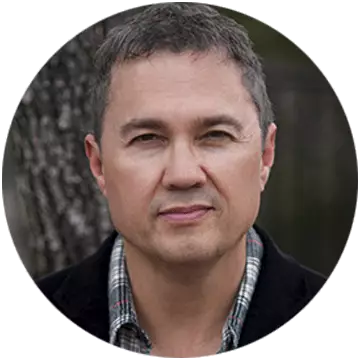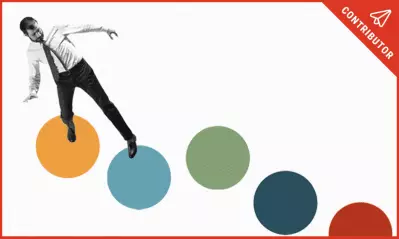The hopefulness of hope

Written by Laurie Davies

What if you had something that could lower your risk for heart attack, predict a higher cure rate for illness, and even be something you could pass along to others?
If it were a pill, would you take it?
If it were an exercise, would you try it?
The fact is, this thing exists but is neither a pill nor a fitness regimen. It’s hope.
And for all the Eeyores out there who’d like to tilt a little toward Tigger, there is good news. Hope really may be something we can learn.
That’s right — hope is not some intangible fairy dust sprinkled onto the lucky few.ĚýHope can be taught, according to Rodney Luster, PhD,Ěýchair for theĚýCenter for Leadership Studies and Organizational ResearchĚýat ĆßÉ«ĘÓƵ. In fact, Luster wrote aĚýĚý´Ú´Ç°ůĚýPsychology TodayĚýon this very topic. He sat down with us to discuss hope and the reasons he thinks it’s a game changer.

Could you define hope?
Absolutely. First, I think it’s helpful to define its counterpart.
HopelessnessĚýis the absence of excitementĚýabout life — it perpetuates negative evaluations of all future scenarios, and it greatly diminishes our coping strategies. Some characteristics are listlessness, isolation, a deflated sense of self, a sense of helplessness, feeling sad or rejected, and experiencing oppressed or trapped feelings.
"Hope is a belief that tomorrow will be better than today — and that we have a role to play in that. It involves self-agency, or one’s feeling of control, which makes it aĚýmindset more than a feeling."
Hope is more than wishing. People who have hope typicallyĚýsee the actual potentialĚýin their lives.
What got you interested in looking into hope?
A big part of it was just things I’ve seen working with clients in my private practice. I have a few clients who have had life issues that didn’t look positive; they had cancer or terminal diagnoses. Whether this is coincidence or not (and I think not), the people I’ve seen who ended up in remission hadĚýsocial anchors, which are a big part of hope. That idea of really remaining hopeful is something I’ve seen that’s so important.
Conversely, in the pandemic, people did feel a sense of hopelessness about certain things, and that started to percolate. TheĚýĚýrecently observed that just over half of surveyed American adults did not think they became healthier during the pandemic, with many citing weight gain and increased alcohol consumption as a couple of consequences.
Explain what is meant by the biology of hope.
There are researchers looking into how hope positively affects biology — helpingĚýwounds heal faster,Ěýpreventing infections,Ěýenhancing cure ratesĚýandĚýsending cancer into remission. Harvard-trained brain surgeon Dr. Allan Hamilton believes thatĚý, even in the smaller things like proteins, peptides and hormones. He believes hope can create anĚýenhanced internal state.
He is actually doing research now to see if hope is “allocated” somewhere in the brain.
Does that biology affect our psychology? Is there a “psychology of hope”?
There may be. With psychology, we’re talking about the potential forĚýenhancing resilience. And when people have hope, we do tend to pair that with a higher level of resilience.
Can you get into the most promising finding, that hope can be taught?
For my piece inĚýPsychology Today, I interviewed University of Oklahoma professorĚý,Ěýwho has studied hope for more than a decade. He’s the current expert on the subject. And what he has found is that hope is not some amorphous, cloudy kind of thing. It is a mindset more than a feeling. And his view is this means it can be taught.
How can we learn to hope?
According to Dr. Hellman, you begin to instill hope throughĚývery short-term goals.
Anecdotally, in my practice over the years, I have seen patients whose disposition remained “hopeful,” who were actively able to challenge the progression of their illness.
They had some common denominators:
- Setting goals
- Focusing on the here and now
- Avoiding catastrophizing
- Utilizing social anchors (family, friends, loved ones, church)
- Having healthy sleep, eating and daily “meaning making”
To the first point, Dr. Hellman recognizes that goal setting is a cornerstone of hope. Short-term, specific goals and imagined success with those goals are actually more effective than long-term goals. So, for example, you might ask: “What might be a small goal I could set with my family or loved ones this week?” And then comes the imagined success: Who will benefit? Who will celebrate with us when we attain the goal?
I have found that havingĚýpurposeful daysĚýis a big part of the journey toward hope. Some clients struggle with purposeful days, replaced by video games and perhaps even drug use sadly, and in turn, they feel depressed. There is no sense of purpose there and no direction in life. Their days may lack a sense of direction and purpose.
What other findings came out of your interview with Dr. Hellman?
I think the other thing he said that is so intriguing is his description of hope as a “social gift.” Hope tends toĚýflourish in relationshipsĚýwith others rather than in isolation. People want to be around it because it’s life affirming and they feel loved. It’s contagious.
What kind of hope does “hope” hold for the future?
Just on the basis of biology, theĚýpreventive aspectsĚýare exciting — better cure rates of illness, lower heart disease, better blood pressure results, less suicidal ideation. … If we’ve got something that can enhance our quality of life in that way, and we don’t have to go to the doctor as much, that alone is incredible. And now, if we’re talking about hope asĚýsomething we can lean into, something that can be taught? That’s really good news.

ABOUT THE AUTHOR
A journalist-turned-marketer, Laurie Davies has been writing since her high school advanced composition teacher told her she broke too many rules. She has worked with ĆßÉ«ĘÓƵ since 2017, and currently splits her time between blogging and serving as lead writer on the University’s Academic Annual Report. Previously, she has written marketing content for MADD, Kaiser Permanente, Massage Envy, UPS, and other national brands. She lives in the Phoenix area with her husband and son, who is the best story she’s ever written.Ěý
This article has been vetted by ĆßÉ«ĘÓƵ's editorial advisory committee.Ěý
Read more about our editorial process.
Read more articles like this:


